
Inhalation Toxicology
With the exception of my Blockchain Technology post, my previous Science, Technology, Engineering and Mathematics (STEM) posts have covered the fields of: Pharmacology, Toxicology, and ADME/Drug Metabolism – all of which are considered ‘Biomedical’ sciences. Similar to those fields, Inhalation Toxicology as a discipline dates back to over a century ago, and is very complex regarding the wealth and depth of information available. It’s also still evolving today.
The goal of this post is not to address every detail and nuance of the field, but instead to give readers unfamiliar with it a basic introductory understanding of the discipline. This post was prepared for a general audience and thus any fellow Inhalation Toxicologists who may read this, may find it a little too simplistic. That’s okay though, as the goal is to educate others on our field and what we do. Further details about the many aspects of Inhalation Toxicology can be accessed online, or in scientific journals.
This overview of Inhalation Toxicology definitely falls under my principle of ‘Creating Ecosystems of Success’ as it is a very unique knowledge and skill set possessed by only a select few – one of which I acquired accidentally when seeking training in ADME/Drug Metabolism as a ‘Postdoctoral’ scientist. Why is Inhalation Toxicology a unique skill set? I’ll start with a holistic discussion about the three routes of human exposure which will take us briefly into another biomedical discipline; ‘Anatomy and Physiology’, which deals exclusively with the organ systems within the human body, and how they collectively work together at the tissue and cellular levels.
Routes of Exposure
My posts regarding Pharmacology, Toxicology, and ADME/Drug Metabolism focused on exposure to chemicals primarily through the oral route – ingestion through the mouth and then absorption into the ‘Gastrointestinal Tract’ (GI-Tract). While we typically think about the ingestion of chemicals through the oral route, the reality is that humans can be exposed to drugs and toxicants through two other routes; the dermal route by way of our skin, and the inhalation route by way of our ‘Respiratory Tracts’ – the region spanning from our nasal passage down into our lungs where gas exchange with the atmosphere occurs. Each route has its own unique properties anatomically which impact the potential absorption of chemicals into the body where they can exert their therapeutic or toxic effects at specific tissues.
Each route receives differing amounts of what’s called the ‘Cardiac Output’ or the blood delivered from the heart. On average, the GI-Tract receives 21%, the skin receives 9%, and the lungs receive 100% of the heart’s Cardiac Output. This makes sense as the function of the lungs is to facilitate gas exchange between our bodies and the Earth’s atmosphere.
The Alveoli and Gas Exchange
The lung’s ‘Alveoli’ are critical for the body’s absorption of ‘Molecular Oxygen’ (O2) into the bloodstream. Once inhaled, the O2 in the air is very rapidly absorbed into the pulmonary capillaries from the alveolar spaces where it binds to the ‘Hemoglobin’ in our blood while the ‘Carbon Dioxide’ (CO2) releases into the alveolar spaces to be exhaled. This exchange of O2 and CO2 are both very rapid and efficient in healthy lungs – something our bodies do without us even thinking about it. What allows for this very efficient exchange of gases with the environment is a very, very thin 0.5 micron three-cell layer separating the alveolar spaces from our pulmonary capillaries. These capillaries immediately receive and return blood to the heart for distribution to the body.

Without the continuous exchange of O2 and CO2 through our lung’s alveoli, our bodies could not function as O2 is a necessary substrate for our body’s many tissues at the cellular and molecular levels. This is important because while other bodily tissues can tolerate varying degrees of O2 deprivation, it is well understood that even short periods of deprivation of the brain can cause irreversible damage, unlike with long periods of food and water deprivation. For this reason alone, maintenance of proper respiratory function is critical. With that, I’ll transition into what Inhalation Toxicology is and why it’s important.
Hazard Through Inhalation
Inhalation Toxicology is the study of the harmful effects of chemicals on living systems through the inhalation route of exposure via breathing – typically as it applies to mammalian species. It’s a very important field as respiration is a critical biological process for mammals as described above, and thus any toxicant that compromises the body’s capacity to exchange O2 and CO2 with the environment is very dangerous.
Before I discuss the types of chemical agents that can cause injury through inhalation exposure, I’ll first describe the two types of effects that can result from exposure to inhalation toxicants; ‘Portal of Entry’ effects and ‘Systemic’ effects. A Portal of Entry (POE) effect is an effect produced in the tissue or organ of first contact with a chemical or toxicant. In this case it’s an effect where a toxicant causes damage starting from the nasal passage down into the multiple regions of the lung. There are multiple regions and cell-types along the respiratory tract – each with specific functions – all of which can be uniquely injured.
In laboratory settings described later, some POEs are instant when observing lab animals and manifest as ‘clinical signs’ which are visible. Irritation in the respiratory tract can trigger the ‘Paintal’ reflexes and ‘Bradypnea’ in rodents which are immediate changes in the breathing patterns of the animals through very sensitive nerve processes and receptors in respiratory tissues. Anyone who has worked in a research lab and has opened a bottle of concentrated Hydrochloric Acid outside of a fume hood appreciates how quickly irritation can occur, as it only takes seconds to feel the burning sensation in the nose followed by: coughing, watering eyes, shortness of breath, etc.
Long-Term Effects
Other POE Effects are more time dependent and can take hours, days, or weeks to fully set in. Some are some are reversible, while others are irreversible. Prolonged exposure to some toxicants can cause ‘Inflammation’ in the lungs leading to ‘Pulmonary Fibrosis’ (formation of scar tissue) or the formation of ‘Pulmonary Edema’ – both of which compromise lung function and can eventually be fatal. ‘Asbestos’ poisoning causes injury through prolonged activation of the ‘Immune’ system in the lungs, damaging them over time as the Asbestos particles cannot be removed once inhaled.
Smoking cigarettes is a good example of people willingly injuring their lungs. The paper used to roll cigarettes and the ‘Tobacco’ inside them contain thousands upon thousands of compounds before the cigarette is even ignited. Once lit and those chemicals are ‘combusted’, they transform into numerous other chemicals – some of which are referred to as ‘Reactive Intermediates’ which themselves come into contact with the cells of the Respiratory Tract. Years and years of direct cigarette smoke inhalation can cause irreversible damage leading to diseases like Lung Cancer. There is also risk of lung injury from living in industrial areas where there is the potential to inhale combusted compounds and particulates from factory emissions.

Before moving on, I’ll add here that while many inhalation toxicologists consider the lung itself to be the most important part of the Respiratory Tract, recent science has shown that the Nasal Passage is also a toxicologically revelation tissue as it relates to inhalation exposure. It contains drug metabolizing enzymes similar to those described in my ADME/Drug Metabolism post. The lungs do as well. Some chemicals can thus damage these regions if inhaled for prolonged periods of time.
Systemic Effects
Systemic effects refer to injury/toxicity in other parts of the body beyond the Respiratory Tract. If a chemical/toxicant can efficiently pass through the lung’s alveoli as described earlier, it can enter the blood stream and into the body’s general circulation. From there it can damage other organs as discussed in my Toxicology post. Medicinally, some therapeutics such as anesthetics for surgeries are actually administered this way – Halothane is an example.

Two classic systemic inhalation toxicants are Carbon Monoxide (CO) and Hydrogen Cyanide (HCN) which I’ve hyperlinked in case you’re curious to learn more about how they work. While CO poisoning has been associated with accidental deaths from tailpipe emissions in garages, HCN is a known potential chemical weapon which is particularly dangerous in enclosed spaces such as subway stations – something our intelligence agencies are very aware of.
These are just a few examples of toxicity through the inhalation route of exposure. There are many other chemicals and substances that can cause injury and in some cases therapeutic benefit through the inhalation route of exposure. Many industries and groups highly consider Inhalation Toxicology. They include:
• The Chemical Industry: Pretty much any industrial chemical that’s generated has the potential for inhalation exposure depending on its ‘Physical-Chemical’ properties, and how it’s used. These include paints, pesticides, and disinfectants – any product that companies are looking to sell to the general public.
• The Tobacco Industry: The Tobacco Industry has to have a firm understanding of what cigarette smoke does to its customers and bystanders inhaling ‘second hand’ smoke. They are thus very interested in the long-term effects of cigarette smoke inhalation.
• Nanoparticles and Nanomaterials: We’re very early in the use of ‘Nanomaterials’, and there is a lot that is unknown regarding the toxicity of these particles – in this instance, when they’re inhaled.
• National Defense: Our military and the ‘Defense’ sector very much care about Inhalation Toxicology as soldiers are sometimes sent into theaters of war where enemies use biological and/or chemical weapons. There are also unfortunate incidences where chemical weapons are unleashed on civilians such as the recent chemical attack in Syria where rescue officials believe the agent used was Chlorine gas.
• The Pharmaceutical Industry and Medical Devices: Some medicines can and must be delivered through the inhalation route. A classic example is the use of ‘Albuterol’ for patients with Asthma, but there are numerous other examples such as when anesthetics and other treatments are given through inhalation exposure.
• Public Health: Federal and State governments, academic researchers and private sector companies are always cognizant of how the general public is exposed and affected by any of the chemicals described above which invariably end up in the air, and can cause any number of disease states including Asthma, and in some cases Lung Cancer.
Inhalation Toxicology Research
Having introduced the field in terms of background and context, I’ll now discuss some of its experimental and technical aspects using visuals provided by CH Technologies – a leading company in the manufacture of Inhalation Toxicology exposure systems. Inhalation Toxicologists and Scientists not only need an understanding of the biology of injury to the Respiratory Tract via inhalation exposure (examples described above), but they also need an understanding of how to properly create the experimental conditions to test for inhalation toxicity. It’s relatively straight forward to feed a test specimen the chemical of interest in food or water, or to apply it via the skin, but how do you administer it for inhalation exposure?

The answer is that the chemical must be administered as a ‘gas’, an aerosol’, a ‘dust’, or even a ‘cigarette smoke‘ suspension in some instances. This involves some knowledge of Chemistry and Physics, as well as Mathematics and Statistics. A key aspect of any toxicological field is proving the concentration/dose tested and properly correlating it with the effects observed. Scientists must thus be able to verify their test atmospheres, and there are numerous ‘analytical’ chemical methods for doing so.
Gases, Aerosols, Dusts and Vapors
Some chemicals readily exist in the ‘Gas Phase’ – that is they have what is referred to as a high ‘Vapor Pressure’ and are very ‘Volatile’. Some are liquids while others are solids. Mothballs are an example of a volatile substance – a solid which ‘sublimes’ and converts directly into a vapor. They give off the unique odor most of us know from our grandparents’ closets, and are comprised of the chemical ‘Naphthalene’ which itself has a high vapor pressure. Other chemicals have low vapor pressures and are considered ‘Non-Volatile’ and must form aerosols to be inhaled – think of a mist from a spray bottle. ‘Dust’ suspensions can be generated as well for experiments. In some instances, generating inhalable suspensions are not feasible depending on the properties of the test material of interest.
Test Models and Species
While the test species for Inhalation Toxicology studies vary, the species of choice is typically rodents – rats and mice. In some instances guinea pigs and primates are used. Each of these species possess the same organs that humans possess for the most part, and are thus useful models for human exposure. Scientists must be well trained in both caring for the test animals and also operating the highly specialized equipment used in these studies which I’ll cover next.
Test Systems
Testing a drug’s/chemical’s efficacy/toxicity through inhalation exposure requires the use of an ‘exposure chamber’ where an inhalable atmosphere of the test article is generated for inhalation exposure by the test subjects. The accompanying picture shows a single level chamber with the accessory equipment used for measuring the chamber’s inner atmosphere using some of its ‘exposure ports’. Click on the image to enlarge it. Using the accessory equipment, the concentration of the test material in the chamber can be monitored by the scientists running the experiment, in addition to other important measurements including: O2, CO2, temperature and humidity to name a few.
To generate the chamber’s test atmosphere, most modern systems utilize an air-pressure pump to create an in “inflow” into the exposure chamber, and a vacuum pump to create an “outflow” from the chamber – together creating a consistent supply of O2, and removal of CO2 for the test subjects. The accompanying diagram shows a complete inhalation exposure system designed to expose the test subjects to aerosols. Click the image to enlarge it. Whether gases, aerosols or dusts are generated, a supply-line for the test article is ligated into the air supply line feeding the exposure chamber, allowing for the control of the concentration within the chamber by the scientist – something that must be actively monitored throughout experiments.
Whole-Body and Nose Only Exposures
Inhalation studies can use ‘whole-body’ chambers where the animal’s whole body is exposed, or ‘nose- or head-only’ chambers which in some instances have become the preferred method due to their increased specificity to the respiratory tract. A potential drawback of using Whole-Body chambers is that test subjects – usually rodents in the process of grooming themselves can orally ingest the test material by licking their fur coats. ‘Dead space’ within whole body chambers is also a drawback. The accompanying picture shows how a rodent sits in a ‘restraint‘ tube during exposure. An important key to properly running inhalation exposure experiments, is making sure that animals are adequately acclimated to the tubes and are comfortable in them for extended periods of time.
The accompanying photograph shows a Nose-Only inhalation exposure chamber with all of its exposure ports occupied by the restraint tubes for rodent species. Click on the image to enlarge it. The picture further shows how the number of animals exposed can be increased by stacking multiple chamber levels and increasing the total number of exposure ports.
Depending on the questions being asked in that particular experiment, exposures can range from: hours, to days, to weeks, to months and years. During and afterwards, any number of toxic or therapeutic biological responses can be measured including changes in: clinical signs, body weights, blood chemistry, clinical chemical parameters, and changes in organ weights and tissue microstructure (histopathology). Again, collectively these are a very technical set of experiments to run, and which require a very specific and unique skill set.
Inhalation Toxicology Training
How can students get trained in Inhalation Toxicology? Beyond high school, students can major in Biology, Chemistry, or any of the Biomedical sciences as undergraduates where they can start receiving lab training if there are researchers at that particular university, or one close by. Further training can be obtained at the Masters or Ph.D. levels. Similar to Pharmacologists, Toxicologists and Drug Metabolism Scientists, Inhalation Toxicologists generally receive their training at major research universities.
As a sub-discipline of Toxicology, scientists looking to receive training in Inhalation Toxicology can have varying backgrounds in terms of degrees conferred. If an individual doesn’t initially train in an Inhalation Toxicology lab, they can work in these labs as Postdoctoral scientists or ‘Fellows’ with any of the Biomedical degrees, and even with ‘Medical’ and ‘Veterinary’ degrees. When I gained my training in Inhalation Toxicology, my Ph.D. was actually in Pharmacology.
Depending on the degree level earned and where the scientist is employed, Inhalation Toxicologists can earn starting salaries of $60,000-$70,000 and above. One of the themes of my posts in this series is there is a tremendous amount of flexibility and overlap in the Biomedical sciences. Upon receiving training in Inhalation Toxicology, scientists must then determine which sector they want to pursue – academia, the private or public sectors, or nontraditional careers. Scientists with this background also have the flexibility to combine their knowledge sets with other disciplines to go into a wide variety of areas in: pharmaceutical companies and biotechs, chemical companies, consulting, patent law and even starting their own companies and ‘Contract’ labs.
Toxicology For the 21st Century
It’s worth reiterating something from my Toxicology blog post and that is there’s an effort currently underway called ‘Tox-21’ or ‘Toxicology For the 21st Century’. One of the goals for Tox-21 is to minimize animal usage. Currently, there are efforts to develop methods to test for inhalation toxicity using in vitro models and cell culture preparations simulating animal tissues. Students interested in this field will position themselves well by learning about some of these advances that are on the horizon.
Thank you for taking the time to read this post, and I hope I was able to shed some light onto what Inhalation Toxicology is as a field. Similar to the other disciplines I’ve discussed, Inhalation Toxicologists have their own professional societies and meetings. While the Society of Toxicology has subsections on Inhalation Toxicology, the field has two of its own professional societies and meetings; the American Thoracic Society, and the American Heart Association as the Heart is a major organ affected by the inhalation of toxins.
The next posts in this series will talk about what Regulatory Science is, and then my personal journey towards becoming a Scientist. If you enjoyed this post you may also enjoy:
• A look at STEM: What is Pharmacology?
• A look at STEM: What is Toxicology?
• A look at STEM: What is ADME/Drug Metabolism?
• A look at STEM: Blockchain technology, a new way of conducting business and record keeping
A special thank you is extended to my Postdoctoral Advisor and his lab for allowing me to learn and train in this exciting field. I also want to thank two other colleagues who will remain anonymous – very brilliant veteran inhalation toxicologists with vast experiences, who have continued to teach me about the field. Finally, I want to thank and acknowledge CH Technologies for graciously answering my many phone calls as a Postdoctoral Scientist when I was first learning how to use their inhalation systems; and also for graciously providing the diagrams and pictures of the inhalation exposure chambers, and systems used in this post.
The Big Words LLC Newsletter
For the next phase of my writing journey, I’m starting a monthly newsletter for my writing and video content creation company, the Big Words LLC. In it, I plan to share inspirational words, pieces from this blog and my writers blog, and select videos from my four YouTube channels. Finally, I will share updates for my book project The Engineers: A Western New York Basketball Story. Your personal information and privacy will be protected. Click this link and register using the sign-up button at the bottom of the announcement. If there is some issue signing up using the link provided, you can also email me at bwllcnl@gmail.com . Best Regards.


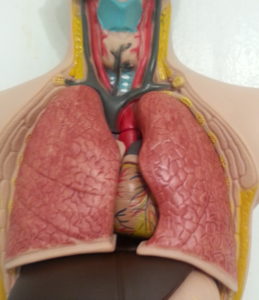








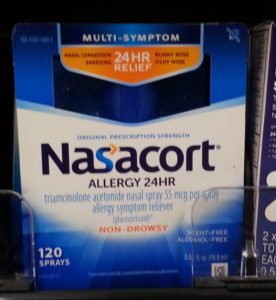
 While black history should be celebrated throughout the year and not just in February, the month provides the opportunity to not only recognize African Americans who have made significant contributions in the past, but also those who are presently making history. As there are numerous African American scientists and innovators who are typically celebrated during black history month in Science, Technology, Engineering and Mathematics (STEM), there are also quite few African American scientists in modern times that are worth recognizing. One such scientist is Dr. Namandje Bumpus (pronounced Na-Mon-Jay), of
While black history should be celebrated throughout the year and not just in February, the month provides the opportunity to not only recognize African Americans who have made significant contributions in the past, but also those who are presently making history. As there are numerous African American scientists and innovators who are typically celebrated during black history month in Science, Technology, Engineering and Mathematics (STEM), there are also quite few African American scientists in modern times that are worth recognizing. One such scientist is Dr. Namandje Bumpus (pronounced Na-Mon-Jay), of 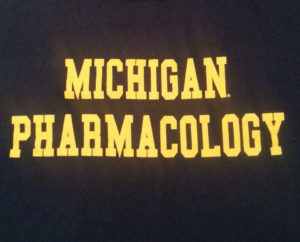 Michigan had a summer program called the
Michigan had a summer program called the  Often times there are summer camps. At
Often times there are summer camps. At  One of the focuses of my blog is STEM (Science, Technology, Engineering and Mathematics), and my most central
One of the focuses of my blog is STEM (Science, Technology, Engineering and Mathematics), and my most central  QC: I attended public schools in Dayton, Ohio on the city’s west side – the ‘black’ side of town. I was always enamored with
QC: I attended public schools in Dayton, Ohio on the city’s west side – the ‘black’ side of town. I was always enamored with 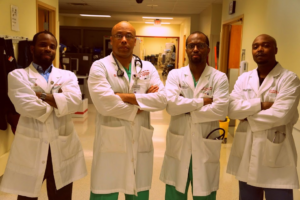 QC: After spending the first eight years of my career in a private
QC: After spending the first eight years of my career in a private  QC: Very little that has been openly stated, but we are sensitive to the fact that there are likely some who feel it’s divisive and not promoting unity. We think that it’s possible to promote Black men in medicine while supporting many other groups. Many of us also tweet using other hashtags that preceded #BlackMenInMedicine, such as #WomenInMedicine, #ILookLikeASurgeon (which promotes images of women in surgery), and others. We took this on because the low numbers of Black men in medicine, in academic medicine, in leadership roles, and amongst medical school applicants has reached a crisis. I should also point out that we, the original creators of this campaign, do not feel that use of the hashtag is proprietary. Anyone who wants to promote diversity in medicine, and particularly encourage Black men to pursue medicine, is welcome to use the hashtag. In fact, we encourage it.
QC: Very little that has been openly stated, but we are sensitive to the fact that there are likely some who feel it’s divisive and not promoting unity. We think that it’s possible to promote Black men in medicine while supporting many other groups. Many of us also tweet using other hashtags that preceded #BlackMenInMedicine, such as #WomenInMedicine, #ILookLikeASurgeon (which promotes images of women in surgery), and others. We took this on because the low numbers of Black men in medicine, in academic medicine, in leadership roles, and amongst medical school applicants has reached a crisis. I should also point out that we, the original creators of this campaign, do not feel that use of the hashtag is proprietary. Anyone who wants to promote diversity in medicine, and particularly encourage Black men to pursue medicine, is welcome to use the hashtag. In fact, we encourage it. QC: I applied to
QC: I applied to  The following piece was originally published on the Examiner back in October of 2013 during my very first government shutdown as a federal employee. It was followed by another piece which I also recently republished titled
The following piece was originally published on the Examiner back in October of 2013 during my very first government shutdown as a federal employee. It was followed by another piece which I also recently republished titled  The following piece was originally published on the Examiner back in October of 2013 during my very first
The following piece was originally published on the Examiner back in October of 2013 during my very first  Two of the
Two of the  While this is an opportunity for some to boast to the opposition that they had the bill all wrong, my focus is on who will benefit from
While this is an opportunity for some to boast to the opposition that they had the bill all wrong, my focus is on who will benefit from  This low percentage of participation in STEM, in addition to
This low percentage of participation in STEM, in addition to  Two of the
Two of the  They were also discussing “
They were also discussing “ To understand how
To understand how  My first example involved banking but
My first example involved banking but  Understanding technologies like
Understanding technologies like 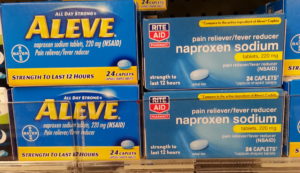


 Metabolism: Once in the body, molecules can undergo “
Metabolism: Once in the body, molecules can undergo “ Excretion: Excretion refers to how the molecule is eliminated from the body. Typically the urine and the feces are measured to determine how the molecule is eliminated. Detection in the urine indicates that the molecule was absorbed to some degree into the bloodstream as the kidneys filter out aqueous waste from the blood. Poor
Excretion: Excretion refers to how the molecule is eliminated from the body. Typically the urine and the feces are measured to determine how the molecule is eliminated. Detection in the urine indicates that the molecule was absorbed to some degree into the bloodstream as the kidneys filter out aqueous waste from the blood. Poor 

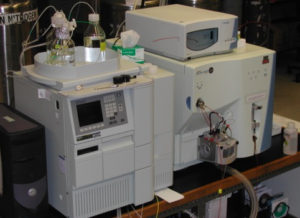










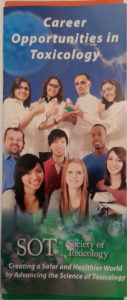
 According to Investopedia, “
According to Investopedia, “ I’ll close by going back to
I’ll close by going back to